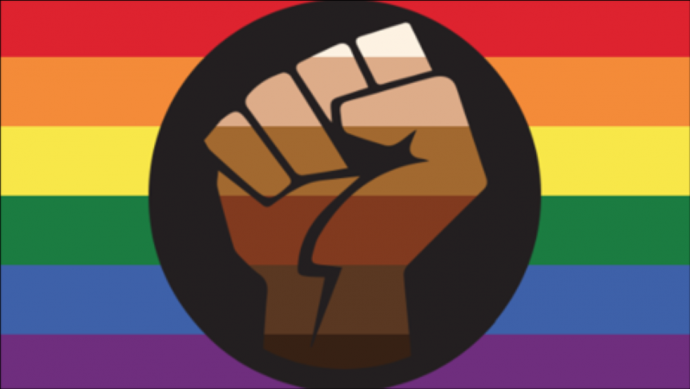As patience wains with the LGBT agenda, the topic of identity politics and the widening opportunity it presents to conservatives continues to be a hot topic. Here are just three examples from recent op eds.
First up is Glenn Stanton writing at Public Discourse:
Is America Running Out of Patience with LGBT Activism?
From surprisingly fast and unexpected victory can come great hubris and the desire to utterly crush one’s opponents.
GLAAD, a leading gay advocacy outfit, released a new report showing that positive attitudes toward homosexuality and people who identify as LGBT have decreased a bit over the last few years. They sum up their findings rather starkly: “This year’s survey reflects a decline with people’s comfort year-over-year in every LGBTQ situation…”
The organization shows great concern over what they describe as the “significant decline in overall comfort and acceptance of LGBTQ people… This year the acceptance pendulum abruptly stopped and swung in the opposite direction.”
Why? Glenn Stanton answers by asking, “Could it be the LGBT community’s post-Obergefell actions and attitudes have not rested well with mainstream America?” Obergefell was the U.S. Supreme Court’s marriage decision.
This is not an outlandish hypothesis. Even some major leaders in the LGBT community have suggested it. Andrew Sullivan, writing about the GLAAD report in New York magazine, warns that no one “seems to notice the profound shift in the tone and substance of advocacy for gay equality in recent years, and the radicalization of the movement’s ideology and rhetoric.” This aggressive radicalization “is surely having an impact,” he holds. How could it not, Sullivan asks, when his movement’s public rhetoric shifted from “live and let live” to the thunderously demonizing “agree with us in every regard or be a bigot”?
In typical fashion, unfortunately, too few social conservatives in political office or on the campaign trail seem to have the intellectual or moral wherewithal to take advantage of this development.
Stanton concludes his article with this:
Perhaps GLAAD and its allies should learn to practice what they preach: tolerance of other people’s beliefs and practices, even if they don’t fully understand them.
Writing at The Federalist, Chad Felix Greene wrote about the same GLAAD report:
Why Americans’ ‘Comfort Levels’ With LGBT People Dropped Last Year
LGBT organizations’ efforts to coerce, impose, and enforce their ideas appear to be resulting in the exact opposite of what they wish to achieve.
Greene writes that the context of the shift in opinion coincides with the LGBT focus on transgender advocacy, and that it “may have an impact on how average Americans view LGBT as a whole.”
The left has a strange sense of entitlement to not only acceptance from the larger society, but also a universal embrace of their ideology. It is not enough to hold legal and civil equality — society must celebrate them as well. As a result, their rhetoric and activism become ever more petty and vindictive and naturally, the majority they accuse becomes more resentful.
. . .
The LGBT movement is deeply reliant on social acceptance and approval and wishes to micromanage how we perceive them. But their efforts to coerce, impose and enforce radical policy and ideas onto the culture appear to be resulting in the exact opposite of what they wish to achieve.
Evidently this lack of patience extends beyond American sentiment and the GLAAD report
Here is Stefano Gennarini also writing at The Federalist:
How Their Refusal To Tolerate Dissent Is Creating A Global Backlash Against LGBT People
Promoting LGBT preferences abroad is more likely to cause backlash against the very people it is intended to help, besides harming our standing in the world, as recent events show.
Last December, Politico published a leaked memo by State Department senior aide Brian Hook, on the importance of realism in U.S. foreign policy… Hook argues that instead of seeking to impose human rights, democracy, and liberal values, the United States should lead by example and incentivize good behavior.
This return to pragmatism breaks with the Obama years’ rigid ideological dogmatism about human rights and clearly rattled the bureaucrats who leaked the memo. But his arguments cannot be easily shoved aside. Promoting a rigid leftist agenda internationally is a form of social engineering.
“Nowhere is the obtuseness of this idealistic approach more evident,” Greene writes, “than in U.S. promotion of LGBT policies abroad.”
Without applying any moral calculus, a realist approach to foreign affairs requires accepting that LGBT rights likely will never be accepted by all the people of the world, no matter how many millions of dollars we pour into foreign LGBT organizations.
“Sadly, extreme LGBT ideologues do not accept reality,” Greene writes, citing the Masterpiece Cakeshop Supreme Court case. Their goal, he writes, “domestically and globally, is to impose social acceptance of homosexuality and transgenderism even on those unwilling to celebrate it.”
Greene notes that United Nations Delegates “routinely complained about the relentless LGBT pressure from the Obama administration,” and concludes:
The State Department should not be peddling LGBT fantasies as legitimate foreign policy. It should severely dial back the LGBT pressure and reset on more attainable and less controversial goals. All-out LGBT diplomacy was always a losing proposition. It should have never happened. Cleaning up this mess will require significant changes.
The moment we are in presents a great chance to win back some cultural ground. Will more social conservative elected officials and candidates find the courage to speak more boldly in defense of common sense and in opposition to the radical left-wing LGBT(etc.) agenda? The Leftist agenda is imploding — now is the time for our leaders to lead on all the issues — including the social issues.

